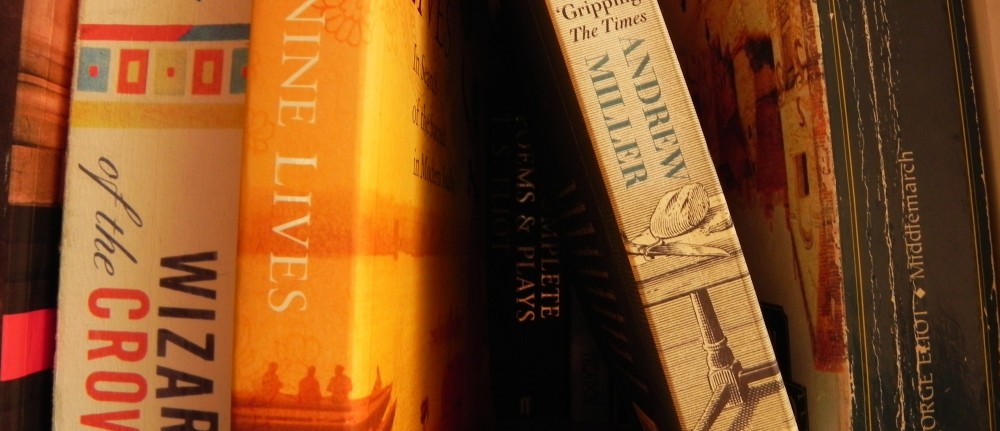The Infatuations is the title of Javier Marías’s latest novel. It tells the story of María Dolz, a middle-aged woman who works in publishing. María is a habitual loner who gets drawn into a web of intrigue when a murder occurs. The victim is an innocuous seeming businessman who takes breakfast daily with his wife at the same restaurant as María.
The handsome couple seem to be exceptionally well matched, and due to this have become a subject of interest to María. Despite the fact that María has never communicated with them, the couple occupy a background position in the everyday routine of her life, their routine providing a sense of reassurance and constancy.
This sense of reassurance is shattered when one day while reading the newspaper María is shocked to discover the husband, whose name she learns was Miguel Desverne, has been stabbed to death by a homeless man for no apparent reason. When she next meets with the widow, Luisa Alday, she decides to introduce herself and offers her condolences. This results in an invitation to the grief-stricken Luisa’s house. Here María is introduced to the deceased husband’s former best friend, the handsome and charming Díaz Varela.
Diaz Varela has offered himself as a shoulder to cry on for Luisa in accordance with the wishes of his departed friend, as it transpires. María is quite taken with this suave gentleman, and after a chance meeting in a museum they become lovers. Alas the affair is rather one-sided, its progress driven on by María’s infatuation with Diaz Varela rather than by any initiative on his behalf. Over the course of their one-sided courtship María overhears a snippet of conversation which reveals that Desverne’s murder may have not been the random tragedy it initially seemed.
Having read and thoroughly enjoyed his Your Face Tomorrow trilogy and various collections of his short stories, I picked up this book with high expectations which unfortunately were dashed. It is not that the novel is a complete failure. There is much to commend in it, but rather it fails in comparison to the high quality of the author’s previous work. If presented by a less illustrious author it would no doubt be hailed as a career highlight.
My main problems with the novel lie in the narrator María Dolz. For some reason her voice didn’t convince. I constantly felt I was reading the thoughts and opinions of the sixty-two year old author rather than those of the character, a woman in her mid-thirties. This seemed particularly apparent in the passages where María muses on mortality. The tone feels wrong, a little too jaded for a woman with so much ahead of her. This left me with the rather disturbing mental image of an elderly author trying squeeze himself into the body of a younger woman, wearing her as a costume in order to perform an unconvincing literary drag act.
While some authors have no problem representing a range of ages and genders, the singularity of Javier Marías’s voice, its distinctiveness, renders it hard to separate it from the author. This is reinforced by the characters often becoming a mouth piece for what seem to be the authors’ views. Chapters are taken up with long exchanges between characters where they expound on the author’s favourite themes such as memory, mortality, the banality of violence, and literature.
Much room is also given to characters interpretations of Balzac’s Colonel Chabert, Dumas’s The Three Musketeers, and inevitably in a Marías novel, Macbeth. These dialogues are unconvincing as they are too coherent to have merely occurred in spontaneous conversation. At times the novel feels like an essay with a story tacked onto it at the last minute.
These flaws however are not fatal. If I am going to read large passages about memory, mortality and literature etc… there are not many people I would rather hear expounding on these topics than Marías. The author is a master of his craft, even if he does err occasionally. His treatment and subversion of tired genre tropes is a pleasure to behold. He expertly leads a reader through the story, his set ups unfolding in unexpected ways. He is also an expert at depicting the selfish sides of attraction and romance, and the potential barbarity which exists just beneath the surface of society.
The Infatuations is an imperfect novel. It belongs to the interesting literary tradition of the relative failure. That is, it is a failure, but only in relation to the authors previous work. There is still much to engage the reader and provide an enriching literary experience. I would have no problem recommending this book to anyone who enjoys literary fiction, but would urge that they also read the authors other work in order to contextualise this flawed but still worthwhile novel.


Pingback: ‘The Infatuations’. Reseñas y entrevista a JM en la BBC | javiermariasblog